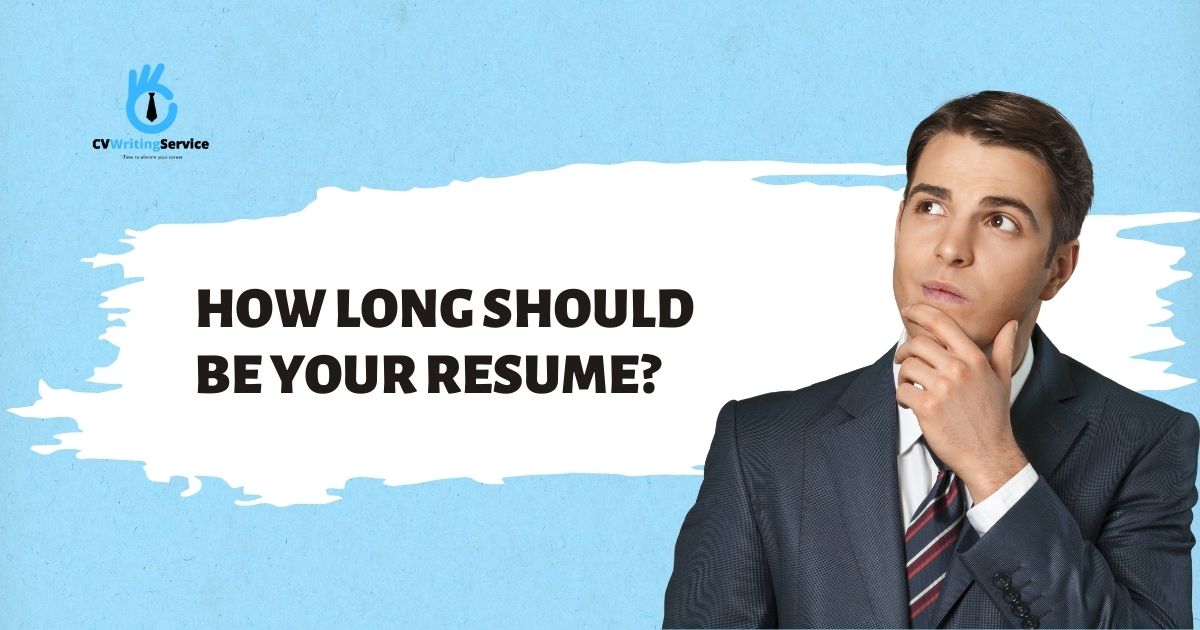
Your resume is one of the most essential documents you may ever create. It's your moment to make a substantial impact on employers, and also you need to ensure it is a very good one.
One of the significant elements not to forget while making your resume is "length". How lengthy should be your resume?
The short answer: Well, it depends on the job and the requirements.
The detailed answer: The perfect size of your resume be proportional to your level of experience, the kind of job you are applying for, and the enterprise you are in. However, there are a few standard recommendations you may follow.
- For the majority of job seekers, a one-page resume is an optimal length. This is mainly perfect for students, current graduates, and candidates with 1-10 years of experience.
- If you have over 10 years of experience, you can use a two-page resume. However, it is crucial to ensure that each phrase for your resume is applicable and impactful.
- In the case of applying for a creative or technical role, a lengthier resume could potentially be acceptable. However, it remains crucial to be concise and to emphasize the most pertinent details.
Here are a few points for writing a resume that is the proper length:
- Start by highlighting your most relevant experience, education, and skills.
- Then, analyze your listing and cut out anything that is now no longer essential.
- Use key phrases in your resume which are applicable to the roles you have worked and applied for.
- Use active verbs and robust language to explain your accomplishments.
- Proofread your resume cautiously earlier than submitting it.
Here are a few common errors which can make your appearance unprofessional:
- Don't include irrelevant information.
- Don't use an excessive amount of jargon or technical language.
- Make your resume visually appealing and easy to understand by avoiding overcrowding.
- Don't use a font which is too small or hard to read.
The Bottom Line
Your resume must be the proper length to present your talents, skills and experience without overwhelming the reader. By following the above tips, you may write a resume that is perfect for finding your desired job.
An excessively lengthy resume can be ignored by hiring managers who lack the time to study full-size text. Conversely, a too concise resume could create issues with the candidate's experience and self-assurance level.
So, How Do you Find the Perfect Balance?
The best method to decide the proper length of your resume is to tailor it to the particular position you want to achieve. Start by studying the job description cautiously and being attentive to the requirements. Then, ensure your resume highlights the relevant abilities and experience you have.
If you are still confused about the length of your resume, you could usually ask an experienced person or a professional counsellor for his or her advice.
Here are some additional tips for finding the correct length for your resume:
- Consider the extent of experience. If you are a fresh graduate or have less than five years of experience, a one-page resume is commonly enough. If you have over 5 years of experience, you can extend your resume to two pages.
- Review the industry you are in. Some industries, which include technology and finance, generally tend to have longer resumes. Other industries, which include healthcare and education, generally tend to have shorter resumes.
- Use your judgment to ensure how lengthy your resume must be. Check out everything than taking a risk; you can upload additional data later if necessary.
- The necessary component is to make sure your resume is adjusted to the selected job and that it highlights your relevant abilities and experience.
In a Nutshell
- The best length of your resume will decide by your experience, the form of job wish to apply for, and the organisation you prefer to join.
- A one-web-page resume is usually sufficient for the majority of job seekers.
- If you have above ten years of experience, you may lay out a two-web-page resume.
- Use your judgment and err on the side of caution.
